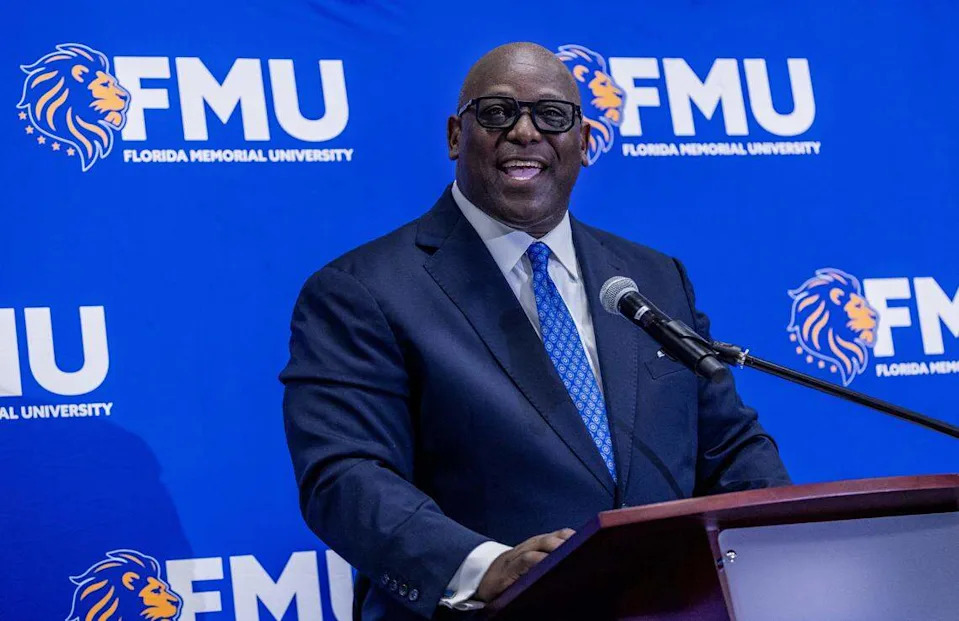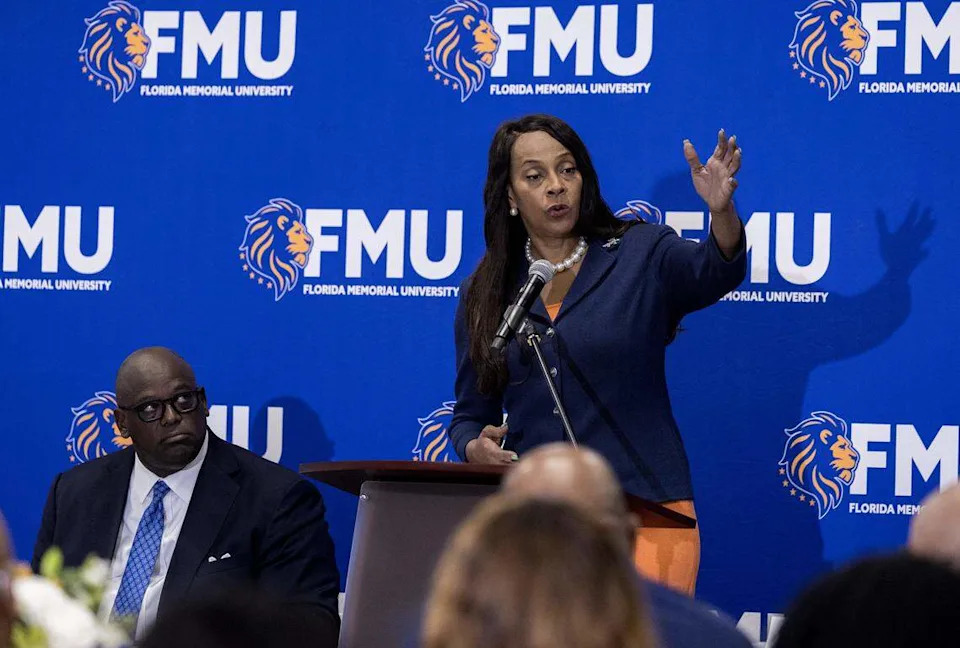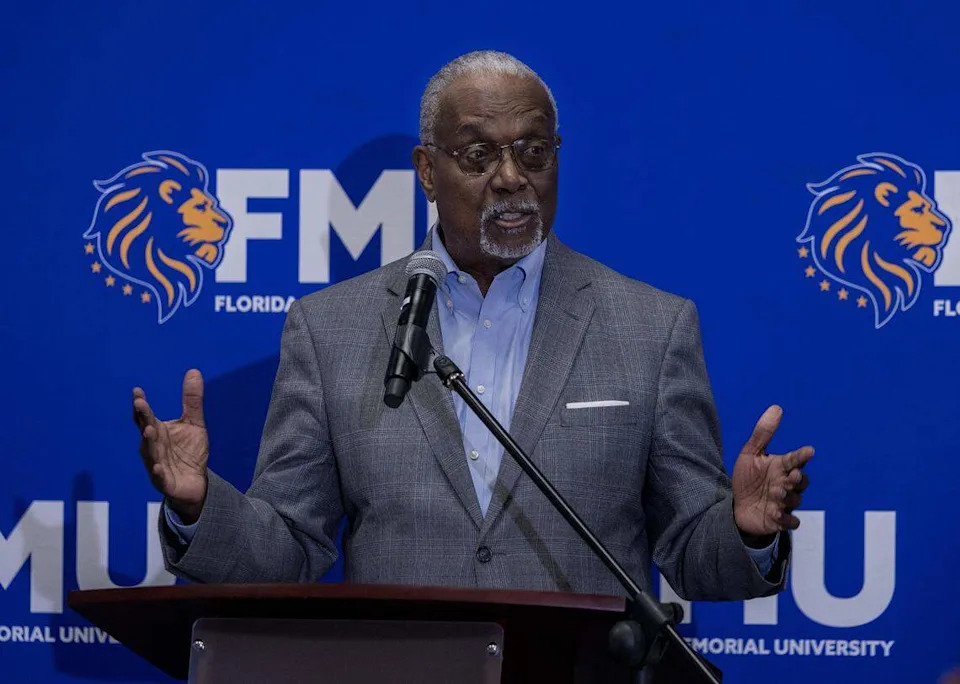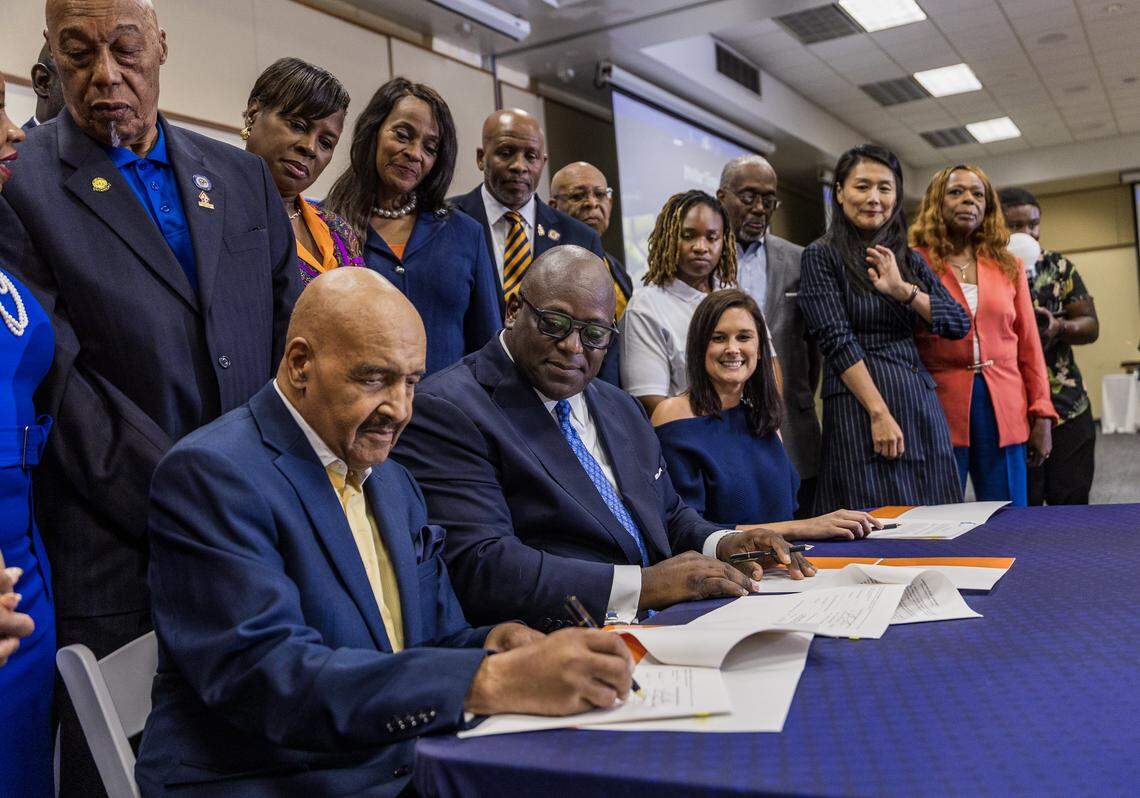More than 60 years ago, what was once known as Florida Memorial College sat on more than 310 acres of land in St. Augustine, Fla.
Now, a portion of that property in St. Augustine will be used for the site of Florida’s Black History Museum, housing artifacts, a performing arts center, an art gallery and an educational space.
“I think that founding missionaries. … now get to rest to knowing that that land is serving a mighty purpose,” Florida Memorial University President William C. McCormick, Jr. told the Miami Herald following a signing ceremony Friday afternoon for the ground lease agreement between St. Johns County and the Florida Memorial University Foundation, which still owns the land. McCormick said the lease is expected to last 33 years.
McCormick said the location of the museum is a tribute to the founders of Florida Memorial College and will “reinvigorate that land.”
Florida Memorial College left St. Augustine in the late 1960s as the civil rights movement gained momentum and the Ku Klux Klan actively sought to maintain segregation in the area. St. Augustine became ground zero for protests against segregation, with many students from Florida Memorial College involved in the efforts. In response to the hostile environment, the college relocated to South Florida, which it has called home since 1968. The school has since expanded and been renamed Florida Memorial University and is South Florida’s only HBCU.

William C. McCormick, Jr., president of Florida Memorial University, said using Florida Memorial’s land for Florida’s Black history museum would make the founders of the school proud.
The state’s Black history museum has been in the works for quite some time, but gained traction in May 2023 when a law passed creating a nine-member task force to provide recommendations to the Florida legislature for the planning, construction, operation, and administration of a Florida Museum of Black History. So far, $1 million has been allocated to the planning and design portion of the project.

William C. McCormick, Jr. (left) president of the Florida Memorial University listens as Florida Sen. Rosalind Osgood, at an event to celebrate the university’s lease agreement with Florida’s new Black history museum.
The museum received bipartisan support in the Florida Senate and a bill filed by Sen. Tom Leeks (R-Ormond Beach), who represents St. Johns County, to build the site in St. Augustine, passed unanimously. “It builds economic capital. It builds legacy. It restores and gives us an opportunity to preserve and keep our own history,” said Sen. Rosalind Osgood (D-Ft. Lauderdale), who co-sponsored the legislation. “I just went through all the boxes.”
RELATED: ‘Rewrite history’: Miami historians alarmed over review of Smithsonian exhibits
Florida’s Black history museum is being planned at a time when museums across the country are finding themselves in the crosshairs of the Trump administration. President Trump wrote on Truth Social that, “The museums throughout Washington, but all over the country are, essentially, the last remaining segment of ‘WOKE.’” He pointed out his frustration with museums that highlight “how bad slavery was.”
The Trump administration’s efforts to end diversity, equity and inclusion in both the public and private sector is forcing museums to rethink their exhibits. The Smithsonian museums, including the Museum of African American History and Culture, are undergoing an internal review by the Trump Administration as part of the America 250 campaign, a purported nonpartisan effort to commemorate the country’s 250th anniversary.
In Florida, legislators have limited how Black history is taught in school, a trend seen nationally as the Trump administration has signed executive orders threatening to withhold funding from schools that they find ideologically out of line.
But McCormick is confident Florida’s museum will provide an important and honest window into the contributions and the struggles of Florida’s Black citizens.
“Every history should be told and preserved, and we have to, as good citizens, understand the value of learning from each other’s trials, tribulation and journeys, and we feel this project will add value to that,” McCormick said.

Howard Holley, chairman of the Foundation for the Museum of Black History, said the museum was widely supported by the Legislature.
Howard Holley, chairman of the foundation for the Museum of Black History, said it’s encouraging that the museum had full support from Florida state senators. “Every senator in the state senate voted for this bill just this year in the earlier legislative session,” he told the Herald. “What does that say? It says that there’s a lot of support for this, broad support.”
St. Johns County commissioner Sarah Arnold agreed. “It wasn’t a Black or white, Republican or Democrat thing,” she said. “The legislature came together because I think they realized how important it was to see this project come to life.”
Holley, who also sat on the Black History Museum task force, said St. Augustine was an appropriate choice given its rich Black history and because it was the site of Fort Mose, the first Black settlement in the state.
“What is amazing is the Black history of this state,” Holley told the crowd at the luncheon. “You want to talk about untold stories. Oh, my goodness, we’ve got some untold stories. But not anymore.”

